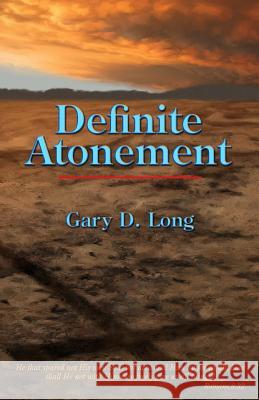Definite Atonement » książka
Definite Atonement
ISBN-13: 9781502929204 / Angielski / Miękka / 2014 / 168 str.
I, the author of this book, see no purpose, benefit or comfort in a redemption that does not redeem, a propitiation that does not propitiate, a reconciliation that does no reconcile, neither do I have any faith in a hypothetical salvation for hypothetical believers. Rather, I have faith in a redemption witch infallibly secures the salvation of each and every one for whom it was purposed before the foundation of the world, namely the children of God that are scattered abroad, which are such a multitude of sinners declared righteous through faith in Christ that no man can number them. God forbid, therefore, "that I should glory, save in the cross of our Lord Jesus Christ" (Gal. 6:14) For Whom Did Christ Die? "God imposed His wrath due unto, and the Son underwent the pains of hell for, either: (1) all the sins of all men, or (2) all the sins of some men, or (3) some sins of all men. If the last, some sins of all men, then all men have some sins to answer for, and so no man shall be saved. If the second, that is it which we affirm, that Christ in their stead . . . suffered all the sins of all the elect in the world. If the first, why, then, are not all freed from the punishment of all their sins? You will say, 'Because of their unbelief; they will not believe.' But this unbelief, is it a sin, or not? If not, why should they be punished for it? If it be, then Christ underwent the punishment due unto it, or not. If so, then why must that hinder them more than their other sins for which He died? . . . If He did not, then He did not die for all their sins." (John Owen, ca. 1650)
Zawartość książki może nie spełniać oczekiwań – reklamacje nie obejmują treści, która mogła nie być redakcyjnie ani merytorycznie opracowana.











